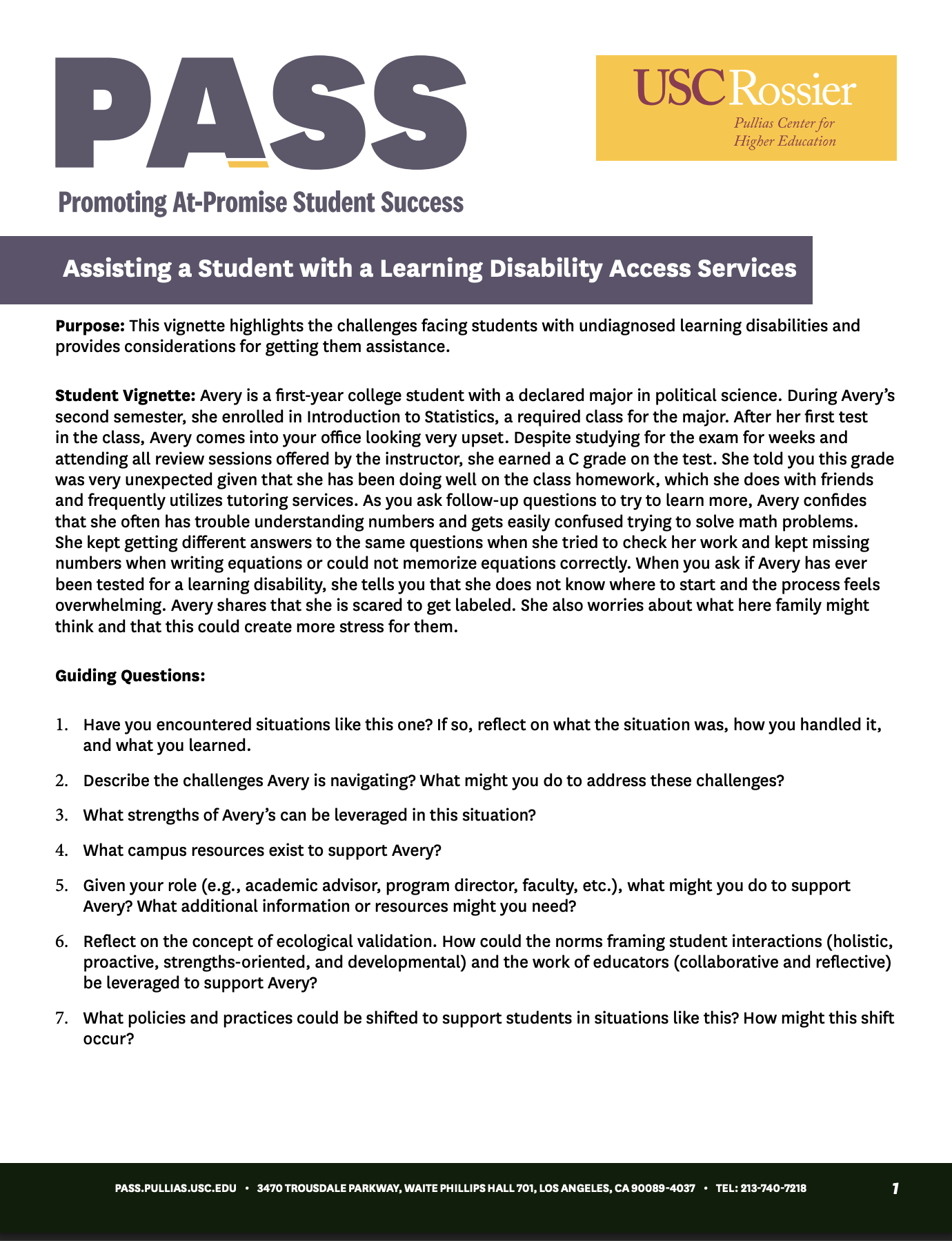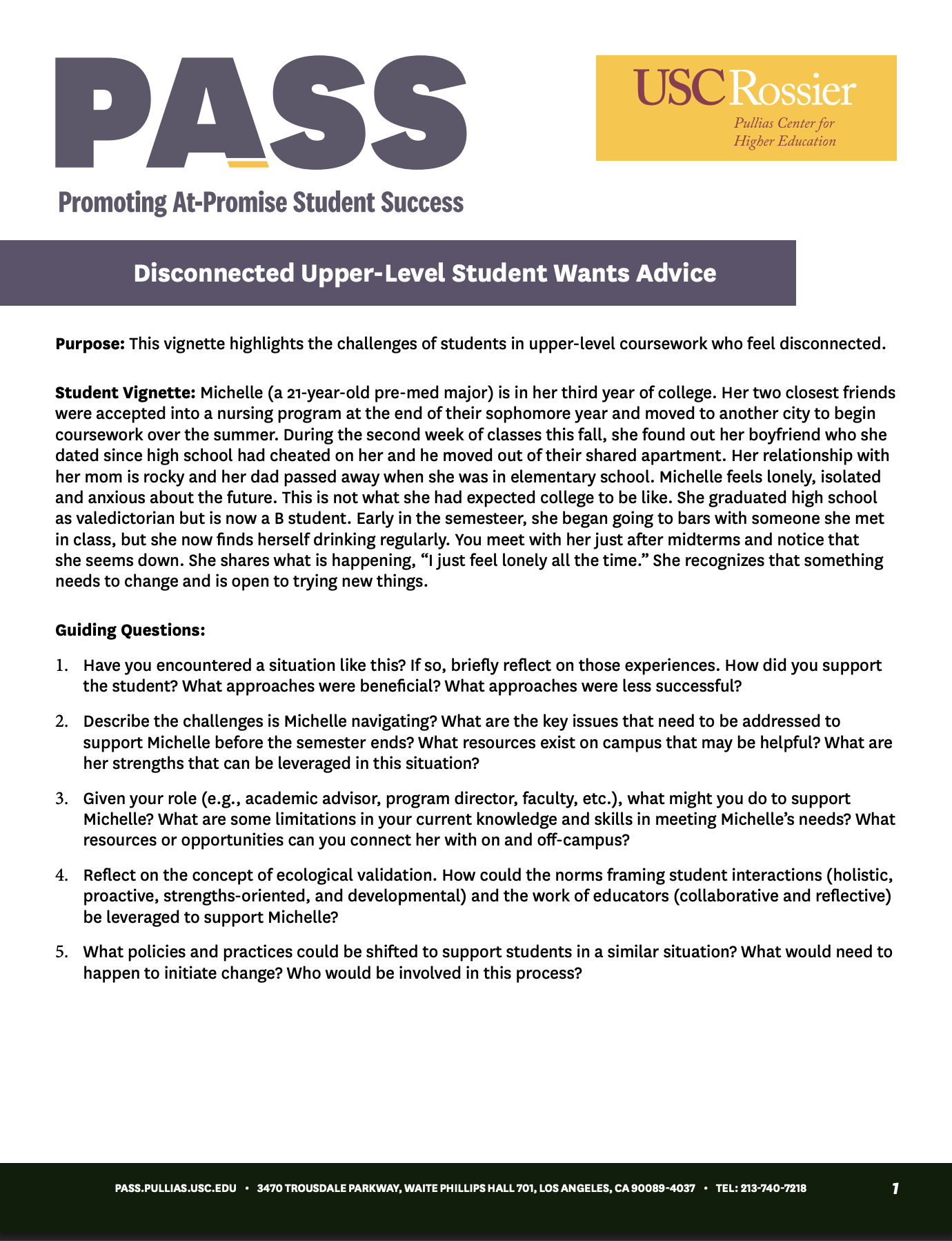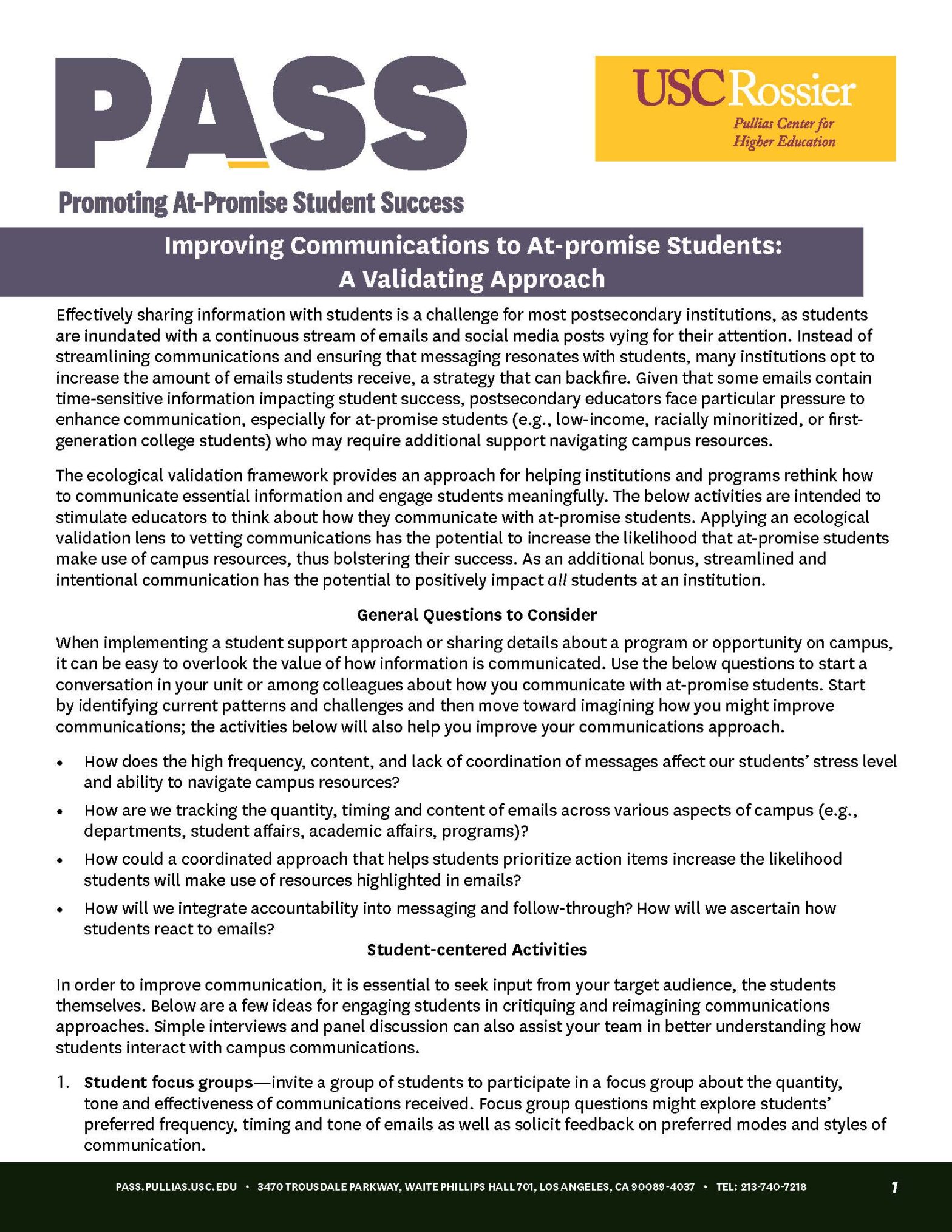This vignette highlights the challenges facing students with undiagnosed learning disabilities and
provides considerations for getting them assistance.
Archives: Articles/Briefs
Disconnected Upper-Level Student Wants Advice
This vignette highlights the challenges of students in upper-level coursework who feel disconnected.
Improving communications to at-promise students: A validating approach-activity.
This activity brief provides an approach for helping institutions and programs rethink how to communicate essential information and engage students meaningfully. The activities are intended to stimulate educators to think about how they communicate with at-promise students.
How the game is played: Low-income students’ experiences with career development programming.
This article examines how low-income students experienced career development programming in a college transition program, showing that many valued learning practical skills like résumé writing, interviewing, and networking in a supportive environment. The article suggests moving away from narrow ideas of professionalism and creating supports that are flexible and responsive to students’ backgrounds and prior experiences
Promoting low-income college student success through peer mentoring: A mixed methods examination.
A matter of time (use): Conceptualizing time navigation and time equity as directions for equitable research.
The article challenges traditional views of time management in education by proposing a shift toward understanding time as a navigable resource shaped by structural and individual factors. It introduces the concept of “time navigation” and positions time-related research within a framework of time equity, aiming to provide a more inclusive and systemic perspective on how students, particularly those from marginalized backgrounds, experience and manage time in educational settings.




